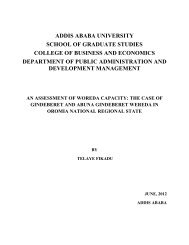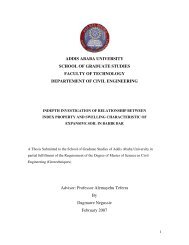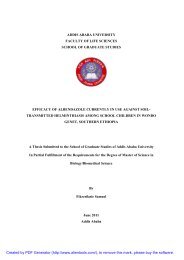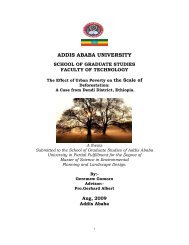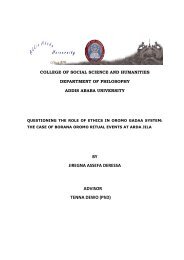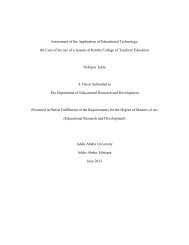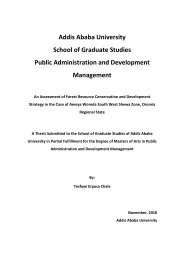FACTORS THAT CONTRIBUTE TO THE PROBLEMS EFL ...
FACTORS THAT CONTRIBUTE TO THE PROBLEMS EFL ...
FACTORS THAT CONTRIBUTE TO THE PROBLEMS EFL ...
You also want an ePaper? Increase the reach of your titles
YUMPU automatically turns print PDFs into web optimized ePapers that Google loves.
input, activating related schemata, or simply lack of cultural awareness.<br />
One learner (S18) reported that it was difficult for her to understand the message<br />
which was related to the historical “the American Civil War”,” I was not a social<br />
science student so that I didn’t learn History; it was difficult for me to understand<br />
the story.” For learner (S19), the interpretation of the whole text remained<br />
problematic, although certain strategies, such as inferencing were involved: "I<br />
inferred the word meaning from the context. Sometimes I understood all the words,<br />
but when all the parts were put together, I didn't know what the speaker was trying<br />
to say." Learner (S20) could not decide how to interpret the meaning of the word<br />
"hide" from the context: “Once, I remember, the speakers in the dialogue were<br />
mentioning the word ‘hide’ several times, but it was very strange for me. After I<br />
went home, I looked it up in the Oxford Advanced Learners Dictionary. Then, I<br />
realized there were several meanings in ‘hide’. But to tell you the truth, I didn’t<br />
know which meaning was the right one.” And, learner (S22) did not succeed in<br />
applying a prediction skill to listening comprehension due to insufficient<br />
background knowledge or schemata: "Prediction was hard for me when I got a<br />
topic, story, or report that I have never heard of."<br />
3) Fatigue<br />
Some learners mentioned fatigue as one of the causes for not being successful in<br />
spoken word processing. For learner (S23) and (S24), their attention or other mental<br />
efforts for listening were affected by their overall condition, i.e., whether they were<br />
tired or not. As stated by learner (S25): "my attention to listen is depended on<br />
whether I am tired or not. When my energy is low, I can't listen very well. Maybe<br />
listening to English songs is all right, but not the tests and the assignments." The<br />
other learner (S26) also reported: "I had to work full time in the other courses. When<br />
I got into the listening class in the hot afternoon immediately after lunch, I was<br />
exhausted. I did not feel like using my brain. When I listened to English at that<br />
time, I got dizzy."<br />
4) Poor English proficiency<br />
The students’ result in the listening course showed that most of the students were<br />
extremely weak in their listening comprehension. Many students also admitted (in<br />
60




